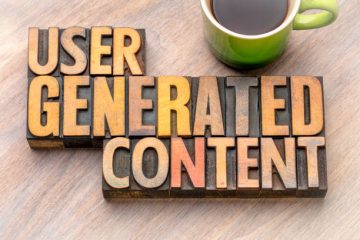Last week, we at DVC published a paper which looked at the Covid-19 Pandemic through the scope of the Rumsfeldian Knowledge Matrix to predict the global economic, socio-political, scientific and technological impacts of the virus.
We at DVC, have been helping clients with what then-US Secretary of Defense, Donald Rumsfeld once famously called ‘unknown unknowns’ – the things we didn’t know we didn’t know – since 1995. Whilst we cannot claim to have anticipated the Coronavirus outbreak, through our LOAF methodology – Leadership and Organisation in Anarchic Flux – we have literally decades in advising organisations facing change and disruption.
A key lesson we have learned over the years is that bad decisions are often taken because people do not pause to examine the evidence in front of them. During times of violent change and disruption management teams can face information overload, and the situation with Covid-19 is no different. We thought therefore that it might be helpful to look at what we do know, and what we don’t. Oddly, given the flack he got at the time, a very useful tool for this is what has become known as the Rumsfeld Matrix of Epistemic Uncertainty:

As has often been said a week is a long time in politics and in this fast moving and global pandemic it seems even longer. So knowing what we know about it so far what do we think are the most important “Unknown Unknowns”.
- Economic
We are entering unknown territory. As the IMF chief economist said, “the world has been put in a great lockdown. This is a crisis like no other”. But what does this mean? In the UK, the government’s own watchdog has issued apocalyptic estimates for what three months in lockdown will mean – suggesting GDP will crash 35 per cent this quarter and two million people lose their jobs. It said ‘for now’ it was assuming there would be a fairly rapid bounce back – but the recession would still be the worst for 300 years.
What will the worst recession in 300 years look like? How will the resulting job losses and poverty effect civil unrest and what will happen between the haves and have nots? Will inner cities be divided into “NO GO” Areas, where the rule of law no longer applies? What will become of a Welfare State (The Safety Net) that is being haemorrhaged by dwindling tax revenues and a gargantuan growth in dependents?
Those countries that committed to the more draconian lockdown measures are already tentatively beginning to ease them. Italy and Spain have started their emergence. The Italian government have announced in its latest decree that starting April14 some businesses could re-open. However, the Pandemic is far from over and the number of deaths remains very high, as well as the newly infected. Given that the Covid-19 outbreak in Italy is alleged to have been started by two Chinese tourists, we cannot see how this is anything but a risk to far. This pandemic has proven that however hard you try to ensure social distancing procedures they are not fool proof so without a vaccine in place Covid-19 is likely to run riot again.
2. Socio -Political
Many countries have started their second month of lockdown. As we predicted last week, protests against deprivation of civil liberties have begun. In the US four states have seen protests, with more to come, as critics target governors and demand their constitutional rights. Some have featured guns and flags. These anti-quarantine gatherings ,emerging as massive unemployment begins to bite(5.2 million people filed for unemployment benefit last week) risk turning into wholesale riots, which in the US have proven in the past, to be contagious and spread from city to city.
China and its handling of the Covid-19 outbreak has also come into sharp focus. Dominic Raab, the UK Foreign Secretary has warned it can no longer be “business as usual” with China, as he said the superpower “had questions to answer” over its handling of the Pandemic. The Foreign Affairs Committee has warned that an orchestrated disinformation campaign by China is “costing British lives” in the fight against Coronavirus. Where will this anti-Chinese Government sentiment lead? Taiwan on the 13th April scrambled warships as a Chinese navy aircraft carrier strike group sailed for the Pacific. The USS Theodore Roosevelt carrier had been deployed in the region but has been forced to dock in Guam after hundreds of its crew contracted coronavirus. As global tensions rise, we predict there will be a heightened polarisation between China and the US and its allies which will have significant implications for trade and scientific and technological cooperation .Is this going to be Xi Jinping’s Chernobyl,or will the communist party be able to weather the storm and re-start the industrial core of its economy ?
A study out today from the RSA suggests that only 9% of Britons want to return to ‘normal’ after the lockdown. Respondents cite greater community spirit, less pollution and being able to hear bird song as good things to have come put of the situation. Obviously, an unknown unknown is whether this turns out to be true or not when the possibility of ‘normal’ life returns. However, this does lead to some interesting questions. Will people be so keen to return to the daily commute when they know they can work effectively, most of the time, from home? If this becomes a major trend, what might this imply for prices of office rents in city centres? During the lockdown, people have got used to spending less money – will this have a long-term impact on consumer spending patterns? And fast food consumption – 38% of respondents to the RSA survey said they were cooking from raw ingredients. Will we become a healthier nation less hooked on takeaway food?
3. Scientific
As we live with the bioterror, the three biggest issues facing Science right now are examining the transmission dynamics, modelling future social distancing strategies for Covid-19 and finding a vaccine and antibody test.
The WHO is gathering the latest international multilingual scientific findings and knowledge on the Pandemic but is currently under threat from its biggest funder, the US, who believes it allowed itself to be misled as to the severity of the Pandemic by China. There are also big questions as to why it hadn’t worked out a Protocol for dealing with Pandemics. We believe there will be intense global pressure to hand the job to someone else.
In the UK the Scientific Advisory Group for Emergencies (SAGE) provides scientific and technical advice to support government decision makers. Authoritative Reports emerge from Imperial College, London, but when it comes down to simple instructions as to whether or not to wear masks in public places or the safety in distance to carry out various exercises the advice differs greatly. There is no common agreement emanating from Scientific Bodies which adds greatly to the confusion and arguably to the spread of the Pandemic.
Furthermore, we don’t believe that any return to normal can occur globally until a vaccine is found. In the UK much has been written about herd immunity, but with no proper form of testing how can this be established?
4. Technological
So as the globe gets into its fourth month of dealing with the Pandemic what have we learnt about technologies role in dealing with Coronavirus.
We have learnt that bandwidth with is a precious resource and not to be squandered.
Large populations confined at home have put serious pressure on the consumption of bandwidth and we believe that traffic prioritization and shaping will be needed to be put in place for core services and business applications. This may need legislation going forward.
Cloud is critical in supporting infrastructure for the crisis and our emergence from it. Cloud capacity, especially from the hyperscale vendors is currently getting us through this time. With a remote, home-based workforce, remote desktop technologies are essential for running core business functions. However, going forward native born-in -the -cloud applications will run core business functions.
We will change from privacy concerns to the logistics of safety and social distancing enablement. Apps are already appearing using big data and machine learning to both track the disease and facilitate social distancing. We predict that this will only grow.
Legacy technologies will become much more important also as less will be spent on technological advances, 5G goes on the back burner and the world examines its relationship with China.
A way Forward
Given the magnitude of the Covid-19 Pandemic all organisations, be they Governments, NGOs or businesses need to examine their management processes, and explore how these might be evolved to map a process to tackle the unknown unknowns
DVC Consultants’ LOAF (Leadership and Organisation in Anarchic Flux) process helps organisations do precisely this. It as a proprietary consulting process for supporting our clients in being disruptors and challengers, rather than being on the receiving end of companies more innovative. It’s a four-part process designed to identify and analyse a wide range of different perspectives, and then to recommend actions on the back of that;
- Leadership: To provide leadership you need to learn from many different perspectives — even those you might disagree with. We are expert in a range of fields, including political analysis, branding, economics, technology and financial services.
- Organisation: Too often companies have the information before them, but key pieces of information are missed. Sometimes this is because people with one mindset are unable or unwilling to accept or understand what others are saying, and why. We are able to ensure that all key insights are kept in view, and synthesised and organised so they reinforce one another.
- Anarchic: To make sense of anarchy you need to analyse. There is no use in having the information to hand if it is not rigorously analysed and tested. Too often people do things on the basis of what they want to be true, rather than that which evidence suggests is true. We apply proper rigour — following Karl Popper — in analysing the challenges facing our clients.
- Flux: This needs fixing. Because we have worked in a range of industries, we know and understand how companies work, and the importance of making good ideas operate through day-to-day management structures, We are able, therefore, to support our clients in putting in place actions that will enable them to be the disruptors, not the disrupted.
About the author
Quentin Anderson is Executive Chairman, DVC Consultants and CEO and Co-Founder of BankTotal. He has decades of experience in advising companies, and for 18 years was a CEO of companies in the WPP group.
q.anderson@quentin
Thought Leadership- Cogitare
Cogitare-The Latin for “To Think, ” is the collective name for DVC Consultants thoughts, insights and perspectives on a broad and eclectic number of subjects. From Brexit to Global Poverty, Islamic Banking to Subsistence Agriculture, Disruptive Technologies to The World Bank. It reflects the wide range of sectors and issues we consult on. We hope you enjoy reading them.
DVC Consultants: Exploring unknown unknowns since 1995




0 Comments